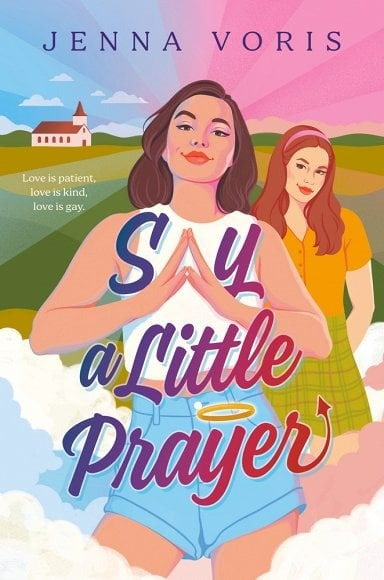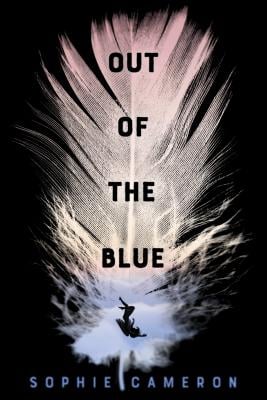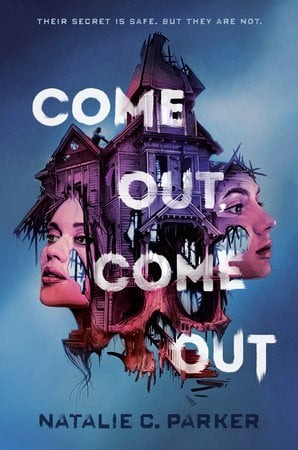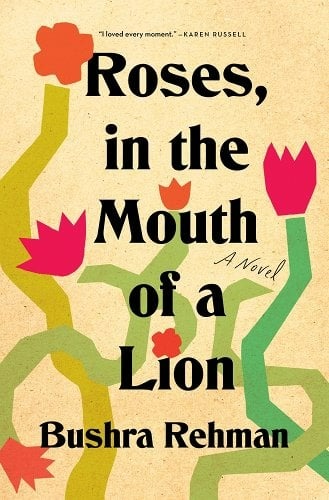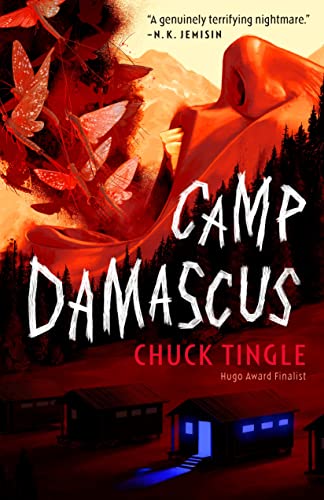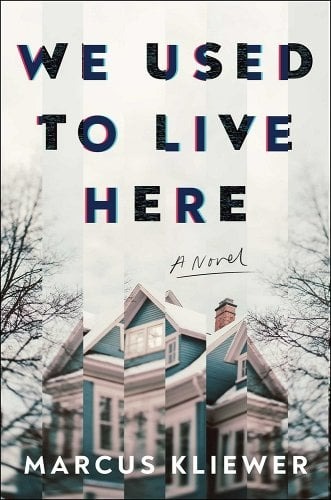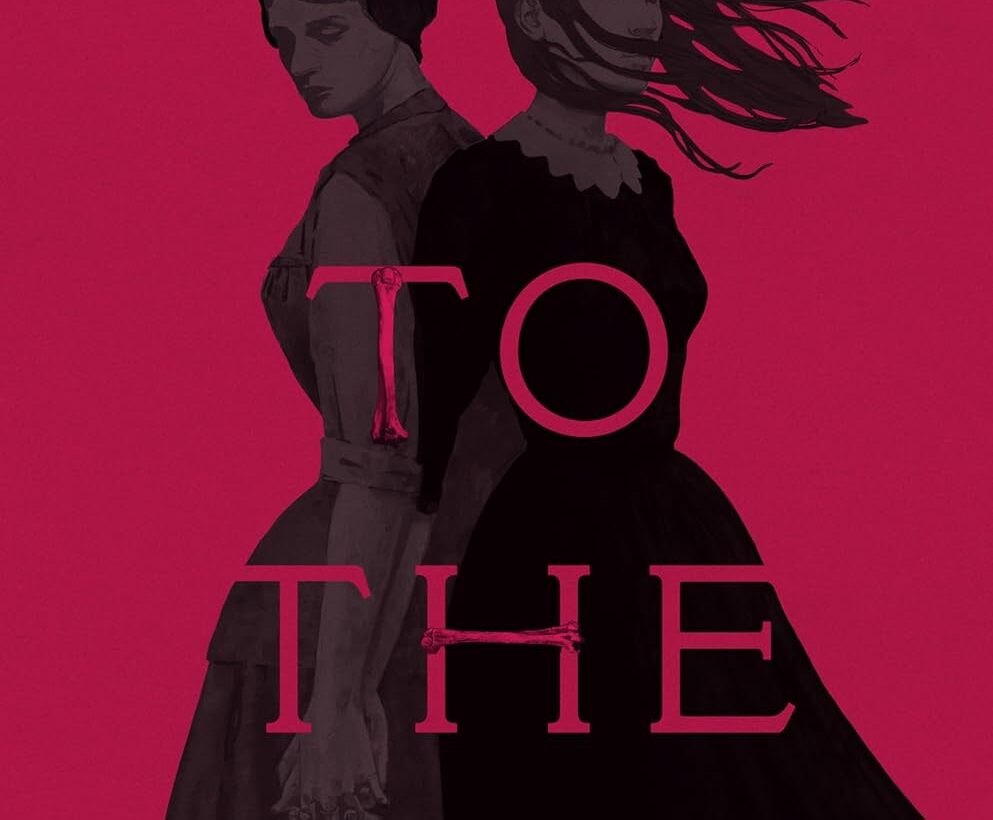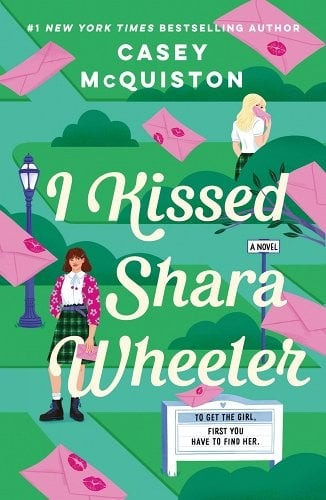When Cassie was in elementary school, she made friends with Ben, a ballet dancer who seemed unrestrained by gender norms. They quickly became inseparable, and in the world they created together at the creek, Cassie began to face her own queerness—until they were caught by judgmental classmates, and Cassie betrayed Ben. He left for anotherRead More
Guilty as Sin?: A Review of Say A Little Prayer by Jenna Voris
Jenna Voris’s most recent novel, Say A Little Prayer (released March 4, 2025), follows stubborn, outspoken, theater kid, Riley, who has recently left her conservative small town church after coming out as bisexual. When Riley’s older sister, Hannah, is kicked out of the church for getting an abortion, Riley makes it her personal mission toRead More
Grief, Uncertainty, and Fallen Angels: Out of the Blue by Sophie Cameron Review
Jaya Mackenzie is grappling with the heavy weight of loss and confusion. Her mother has passed away, her ex-girlfriend disappeared without a trace, and the world is in chaos as angels fall from the sky at breakneck speeds, dying upon impact. Meanwhile, her father’s obsession with capturing one of these celestial beings pulls the familyRead More
Love, Grief, and the Abyssal Depths of the Ocean: Our Wives Under the Sea by Julia Armfield
There is a peculiar kind of sadness in telling a love story backwards, starting with its end. There’s the tenderness and domesticity of an established relationship, and the inevitable fact of its eventual nonexistence. This love story captures a relationship by chronicling its end. Our Wives Under the Sea, Julia Armfield’s debut novel, is a captivating tale told in alternating perspectives about a couple, Miri and Leah, the latter of whom goes out on a deep-sea exploration and comes back irrevocably changed. The book weaves Miri’s struggle to reconcile the slow slipping away of her wife, Leah, with Leah’s recounting of the events of the deep-sea submersible dive.
The Perfect Pick for Queer Horror-Loving Teens: Come Out, Come Out by Natalie C. Parker
Now that we’re out of October, it’s time to move on from spooky books, right? Wrong. Now is the time to read all the books other people read during October and are rec-ing you. I read Come Out Come Out by Natalie C, Parker in only a couple of sessions, and I found it such an engagingRead More
Compelling, Real, & Raw: Roses in the Mouth of a Lion by Bushra Rehman
Razia Mirza grows up amid the wild grape vines and backyard sunflowers of Corona, Queens, alongside her best friend, Saima. When a family rift drives the girls apart, Razia’s heart is broken. She finds solace in Taslima, a new girl in her close-knit Pakistani-American community, all while trying to manage the religious and cultural expectationsRead More
Not Quite Scared Straight: Camp Damascus by Chuck Tingle
“I was a cog in a terrible machine for years, and now I’m honored to be the monkey wrench dismantling it.” Rose grew up in the extremely religious town of Neverton, Montana, where the biggest industry is a gay conversion camp that boasts a 100% effectiveness rate. She’s just about to graduate high school, andRead More
The Successor to House of Leaves: We Used to Live Here by Marcus Kliewer
If you’re looking for a haunted house story to really get under your skin, We Used to Live Here is for you. It’s a slow build, but by the end, it was the kind of story that had me seeing things in the shadows of my room at night. We follow Eve, who has justRead More
A Brutal Colonial Horror Story: To the Bone by Alena Bruzas
To the Bone is the story of Ellis, an indentured girl in the Jamestown settlement of the Virginia colony. Ellis aspires toward little more than goodness; born poor in the late 1500s, she can neither read nor count, but understands the world as preachers sketch its edges. She works hard as a servant to the semi-prominentRead More
Beyond the Surface: I Kissed Shara Wheeler by Casey McQuiston
There’s only one thing standing in Chloe Green’s way of winning valedictorian: the town’s favorite and Chloe’s rival, Shara Wheeler. A month before graduation, Shara kisses Chloe, then does the most infuriating thing: vanishes. Chloe and two other boys Shara kissed are left with a series of cryptic notes; a scavenger hunt to find her.Read More
- 1
- 2
- 3
- …
- 5
- Next Page »

